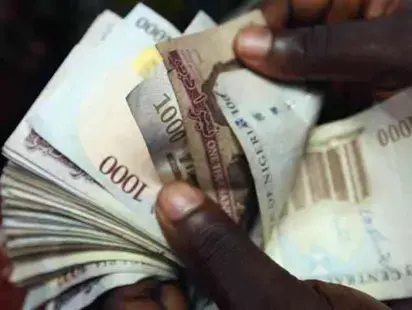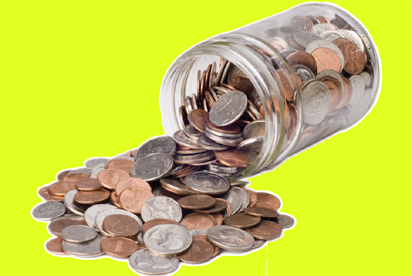Just a week ago, the headlines screamed about Nigerias central bank governor, Olayemi Cardoso, pointing fingers at Binance, the worlds largest crypto exchange, alleging that it had facilitated the transfer of a whopping $26 billion (R496bn) in illicit funds.
To put that into perspective, its more than what Nigeria usually receives in remittances from its diaspora each year. And get this: leading up to June 2023, cryptocurrency transactions in Nigeria made up around 12% of the nations gross domestic product (GDP), according to Reuters.
The allegations have reportedly led to the arrest of two Binance executives and the Nigerian government demanding that the company forks out over nearly $10bn in compensation.
In a scramble to avoid regulatory heat, other crypto platforms in Nigeria are scaling back their operations.
All the drama unfolds against the backdrop of Nigerias currency, the Naira, plummeting inflation inching towards 30% and a slew of socio-economic issues hitting the everyday lives of Nigerians in Africas largest economy.
Lobbying Kenyan regulators
In Kenya, digital asset policy advocacy organisation, the Blockchain Association of Kenya (BAK), is leading a lobby to ensure that the Kenyan government regulates the digital asset market in ways that safeguard citizens interests and promote the growth and impact of the budding crypto industry.
Acting on a mandate granted by Kenyan parliamentarians in the wake of the nations interior minister hinting at a possible cryptocurrency ban, BAK has spearheaded the drafting of the countrys first Virtual Assets Service Provider bill to regulate Kenyas digital asset industry.
Consultations with industry stakeholders, led by BAK directors Allan Kakai, Paul Gachora and Michael Kimani, are under way before the draft bill being presented to lawmakers.
The Kenyan Shillings sustained unprecedented currency pressure in recent times has provided a complex macroeconomic backdrop for BAKs lobbying efforts.
Furthermore, despite the World Banks cautiously optimistic vote of confidence in the Kenyan economy in mid-2023 and the $941 million loan boost in January by the International Monetary Fund (IMF), speculation regarding whether Kenya might be headed into economic recession continues to simmer.
Crypto bullish South African regulators
South Africa continues to be widely considered the continents most favourable regulatory market for digital assets.
In 2021, the South African Reserve Bank (SARB) and the Financial Sector Conduct Authority collaborated closely with various other entities to draft a consultation document to establish a regulatory structure for the industry.
The document proposed that cryptocurrency service providers of all stripes, such as exchanges, wallet providers and brokers, ought to undergo registration with the Financial Intelligence Centre and adhere to anti-money laundering and counter-terrorist financing regulations.
In 2022, the year that saw several major crypto company collapses , the Prudential Authority of the SARB issued guidelines to the financial institutions under its regulatory authority, aimed at preventing illicit activities while encouraging the industry not to shun cryptocurrencies.
During the January 2024 meeting, the Monetary Policy Committee of the SARB highlighted persistent core inflation in the global economy.
The rand continues to slide against major currencies despite the global easing of headline inflationary pressures. Consulting outfits, like Deloitte, are keeping close tabs on South Africas economy, which is navigating tremendous monetary and fiscal pressures.
Deloitte has forecast real GDP growth of only 1% in 2024 for the country and an average of only 1.4% between 2024 and 2026. This falls way short of the IMFs 4% projection for the worlds emerging and developing economies, and 1.7% for more advanced economies.
Awkward tension
In July 2019, I penned a BBC News article titled, Will Facebook's digital money Libra be good for Africa?
In the piece, I reflected on the potential pros and cons of what would later turn out to be an ill-fated attempt to headline and monopolise the global digital payments and digital assets industries by Facebook and Friends.
I observed then that many African governments, not least, Nigeria, Kenya and even my native Zimbabwe, expressed significant concerns regarding the risks of embracing crypto.
Sceptical policymakers held that the premise of cryptocurrencies undermined national sovereignty and tended to gloss over practical governance limitations and security threats, including difficulties in taxation, inadvertent facilitation of illegal activities like money laundering and vulnerability to cyberattacks by crypto hackers.
Far from being a means to level the global economic playing field, many African lawmakers regarded crypto an












